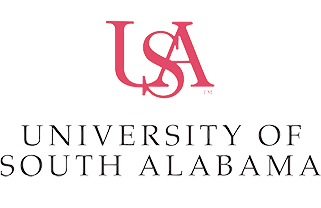
|
Policy No: 2020
Responsible Office: Safety & Environmental Compliance
Last Review Date: 02/10/2022
Next Required Review: 02/10/2027
|
Minors in Laboratories, Shops and Hazardous Areas
1. Purpose
This policy governs minors in any University laboratory, shop and/or area that utilizes hazardous chemicals, bio-hazardous or infectious materials, radioactive materials, or where there are physical hazards present.
2. Applicability
This policy applies to science camps and other department-sponsored events in which minors are approved to participate as part of a larger group, as well as all minors under the age of 19 involved in summer internships, volunteering in research activities and participating in scheduled activities in laboratories, shops, and hazardous settings.
3. Definitions
Biological Agents: Living organisms or products of living organisms such as viruses, bacteria, fungi, prions, and parasites.
Biosafety Level (BSL) Containment: Biosafety Levels 1-4 as defined by the Centers for Disease Control and Prevention BMBL standards. Containment is defined by the type of facility, appropriate engineering controls, safe work practices, and the use of personal protective equipment.
Controlled Substances: Narcotic and non-narcotic substances that are regulated under the Federal Controlled Substances Act and the Alabama Uniform Controlled Substances Act.
Hazardous Areas: Locations where there are physical hazards including (but not limited to) compressed gases, high voltage electrical systems, extreme temperatures, excessive noise, or fall hazards.
Laboratory: As used in this Policy, laboratory refers to any area of a building used or designated to be used by faculty, staff and or students for academic or research activities, which may be hazardous; this includes clinical facilities.
Personal Protective Equipment (PPE): Personal protective equipment is equipment worn to minimize and when possible eliminate potential exposures from a variety of hazards. Basic examples of PPE are items such as gloves, lab coats, hearing protection, respirators, safety glasses or goggles, etc.
Shop: A place or area where machinery and tools are used. Shops include but are not limited to art workshops, engineering workshops, maintenance areas and other sites determined by the Safety and Environmental Compliance office that meet the definition.
Vivarium: A facility where live animals or plants are housed.
4. Policy Guidelines
This policy is intended to serve as a minimum requirement; each college and/or department may develop more restrictive policies and procedures as deemed necessary. Exceptions to this policy may be granted on a case-by-case basis according to University guidelines, pending review and written approval by the Vice President for Research and Economic Development Services and Planning.
4.1 Children of laboratory, shop and or hazardous work area personnel are not permitted in these areas except under one of the following conditions:
-
- In accordance with requirements established in the Children of Employees and Students in Campus Facilities policy;
- In laboratory, shop and/or hazardous areas which have been cleared of all associated hazards;
- In a venue of a University/college/department-sponsored event; or
- For the purpose of escorting a minor to and from an approved non-hazardous office, corridor or space within a facility.
4.2 Minors are never permitted in any setting where research involves controlled substances, BSL-3 or BSL-4 containment areas, Radioactive Material, or Lasers.
4.3 Minors are prohibited from working with:
-
- Highly hazardous materials, including pyrophoric materials, explosives, large quantities of flammable materials (e.g. 1 liter or more), and compounds having oral LD50 less than or equal to 50 mg/kg (e.g., Hydrofluoric acid, acrylonitrile, osmium tetroxide, etc.);
- International Agency for Research on Cancer (IARC) Group 1 or 2A carcinogens or EPA regulated carcinogen.
4.4 Before minors can access a restricted area as defined by this policy, they must be first trained on the specific hazards to which they may be exposed, including how to recognize such hazards and how to protect themselves from those hazards identified. Minors must be trained on the standard operating procedures and emergency procedures for the hazardous area applicable to their scheduled assignments. All training must be documented and updated as conditions change by Principal Investigators (PI)/Activity Sponsors.
5. Procedures
Principal investigators (PI) or activity sponsors must follow these steps to obtain advance authorization and parental permission before allowing a minor to participate in research, shop and/or hazardous activities, and must ensure that minors under their supervision receive appropriate training regarding precautions and restrictions.
5.1 Obtain written authorization before the minor begins scheduled assignments in the lab, shop or other potentially hazardous location using the appropriate forms (e.g., Liability Release, waiver).
5.2 Identify and establish direct supervision of the minor prior to allowing entry. The supervisor must be an appropriately qualified University faculty or staff member. Ensure continuous supervision at all times by a trained and knowledgeable supervisor.
5.3 Review emergency procedures with the minor. Show the minor the emergency equipment locations, building exits and assembly points, how to access Safety Data Sheets if appropriate (e.g. if hazardous materials are being used), and equipment and/or gas emergency shutoffs. Provide emergency contact numbers to include University Police and or security dispatch numbers.
5.4 Provide general and laboratory-specific safety training.
5.5 The PI/Activity Sponsors must confirm and document that the minor receives appropriate laboratory and or shop safety training specific to the area hazards and equipment.
5.6 The PI/Activity Sponsors should provide appropriate PPE and engineering controls, and train the minor in their proper use.
5.7 The PI/Activity Sponsors must review the basic rules with the minor for working in the laboratory area and/or shop including the designated safety dress code (e.g., closed-toe shoes).
5.8 Maintain all training documentation and Liability Release forms in accordance with University policy.
6. Enforcement
This policy is enforced by the Safety & Environmental Compliance Department. Non-compliance may result in suspension of participation of minors in related programs and areas. Policy violations by faculty and staff may also result in disciplinary action per Faculty Handbook or Staff Employee Handbook, respectively.
7. Related Documents
Not Applicable.
